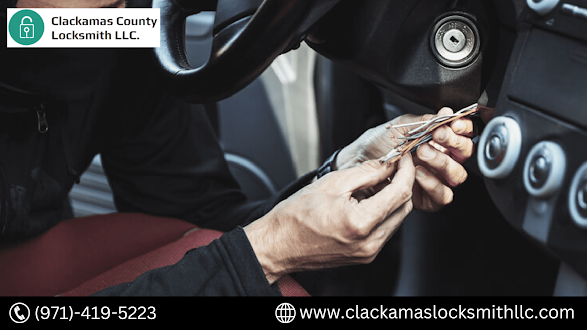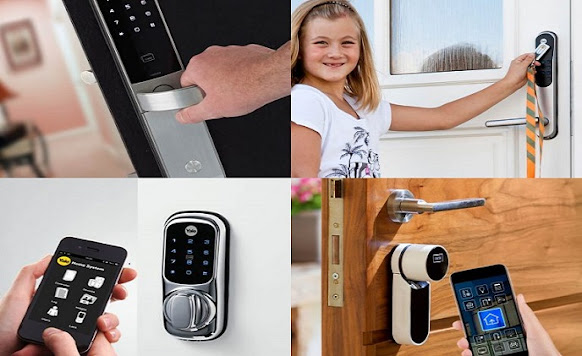Are Keyless Cars Safe? Exploring the Pros and Cons of Keyless Entry Systems
Introduction
The automotive industry has seen significant advancements in technology, and keyless entry systems have become a popular feature in modern cars. Keyless cars allow drivers to unlock, start, and operate their vehicles without physically inserting a traditional key.
Instead, these vehicles use key fobs or proximity sensors, offering convenience and ease of use. However, with any technological innovation, there are both advantages and potential risks. This article aims to explore the safety aspects of keyless cars to help consumers make informed decisions.
The Pros of Keyless Cars
Convenience: Keyless entry systems provide unparalleled convenience. Drivers can simply approach their vehicles with the key fob in their pocket or purse, and the car will automatically unlock, eliminating the need to fumble with keys.
Keyless Ignition: With keyless ignition, starting the car becomes effortless. A simple push of a button is all it takes to get the engine running.
Enhanced Security: Keyless entry systems typically incorporate advanced encryption and rolling codes, making it difficult for potential thieves to clone the signal and gain unauthorized access.
Immobilization Feature: Many keyless cars have an immobilization feature that prevents unauthorized starting attempts. The engine will not start unless the correct key fob or proximity signal is detected.
Reduced Risk of Car Lockout: As long as the key fob is in close proximity, there is a reduced risk of locking the keys inside the vehicle.
The Cons and Safety Concerns
Relay Attacks: One of the significant safety concerns with keyless cars is the potential for relay attacks. Thieves can use electronic devices to amplify the signal from the key fob inside the owner's home to the car parked outside, tricking the car into unlocking and starting. To mitigate this risk, it's essential for car owners to keep their key fobs in a secure location, ideally in a signal-blocking container when not in use.
Battery Drain: Keyless entry systems rely on batteries in both the key fob and the car. If the key fob's battery dies or loses its charge, it may result in difficulties unlocking or starting the vehicle. Car manufacturers typically have backup methods to address this issue, such as a hidden key inside the key fob, but it's still a potential inconvenience.
Risk of Hacking: As with any digital technology, keyless entry systems are susceptible to hacking attempts. Although manufacturers implement encryption to protect against unauthorized access, there's always a risk of vulnerabilities being exploited by skilled hackers.
Proximity-Related Hazards: Some keyless cars may have unintended safety consequences due to their proximity-based systems. For instance, drivers might accidentally leave the car running and unattended, potentially leading to theft or carbon monoxide poisoning if parked in an enclosed space.
Driver Over-Reliance: With keyless cars being so convenient, drivers might become overly reliant on the technology and overlook traditional safety measures, such as physically checking door locks or verifying that the car is entirely turned off before leaving.
Keyless cars have become increasingly popular in recent years, offering drivers the convenience of unlocking and starting their vehicles with the push of a button. While these advanced keyless entry systems provide unparalleled ease of use, they also come with certain safety concerns. In addressing these issues, professional locksmiths play a vital role in ensuring that keyless cars remain safe and secure for their owners.
Relay Attack Protection: One of the significant safety concerns with keyless entry systems is the potential for relay attacks. To combat this threat, locksmiths can install specialized signal-blocking containers, known as Faraday cages or signal blockers, designed to shield the key fob's signal when it is not in use. These containers block external radio frequencies, preventing thieves from amplifying the signal and gaining unauthorized access to the vehicle.
Key Fob Programming and Reprogramming: Locksmiths are equipped with the necessary tools and expertise to program and reprogram key fobs for keyless cars. If a key fob is lost, stolen, or needs replacement, a locksmith can deactivate the lost fob and program a new one to ensure that only the current owner has access to the vehicle.
Battery Replacement and Testing: A weak or dead battery in a key fob can cause inconvenience and compromise the security of a keyless car. Locksmiths can check the battery status of the key fob and replace it if needed, ensuring that the keyless entry system functions correctly.
Keyless Ignition System Maintenance: Locksmiths can inspect and maintain the keyless ignition system, ensuring that it operates smoothly and without glitches. They can diagnose and address any issues related to the ignition system, preventing potential safety hazards.
Duplicate Key Fobs: Locksmiths can create duplicate key fobs for keyless cars, providing owners with spare keys for emergency situations. These duplicates are programmed securely, ensuring that they work seamlessly with the vehicle's existing keyless entry system.
Emergency Lockout Assistance: Despite the convenience of keyless entry systems, drivers can still face lockout situations if they misplace their key fobs or experience a system malfunction. Locksmiths are well-trained in handling such emergencies and can help car owners regain access to their vehicles without causing damage.
Security Enhancements: Some locksmiths specialize in vehicle security enhancements. They can install additional safety features like steering wheel locks, brake pedal locks, or vehicle tracking systems, which add an extra layer of protection to keyless cars.
Conclusion
Keyless cars offer undeniable convenience and security benefits, but they also come with some safety concerns. The risks associated with relay attacks, hacking, and battery drain require car owners to be vigilant and adopt precautionary measures. Storing key fobs securely, utilizing signal-blocking containers, and being mindful of proximity-related hazards can help mitigate potential risks.
As technology continues to advance, it's essential for automakers to address safety vulnerabilities continually. Moreover, car owners must remain informed and cautious to enjoy the benefits of keyless entry systems while prioritizing the safety of themselves and their vehicles. By striking the right balance between convenience and security, keyless cars can be a safe and enjoyable part of the automotive experience.




Comments
Post a Comment